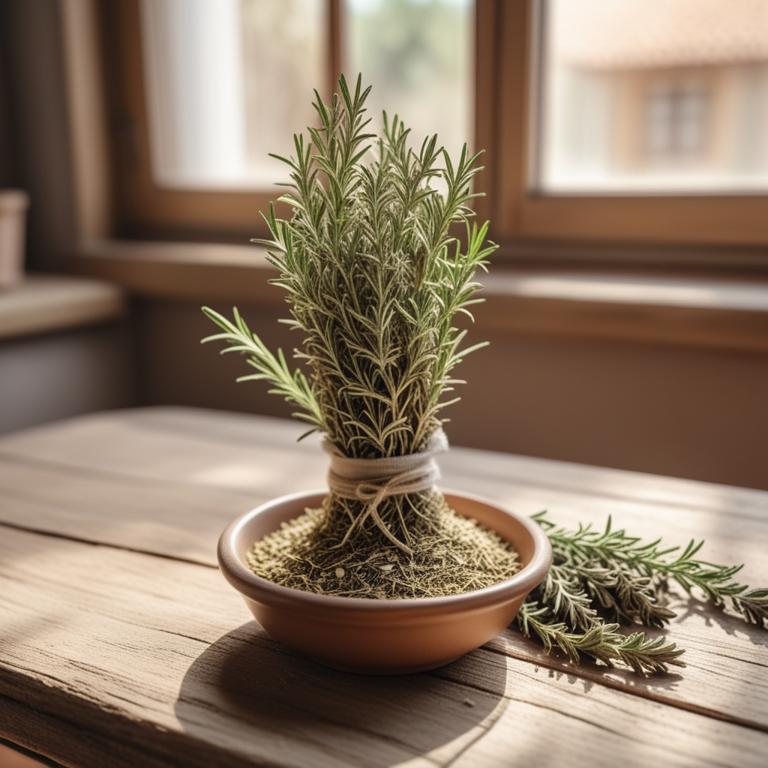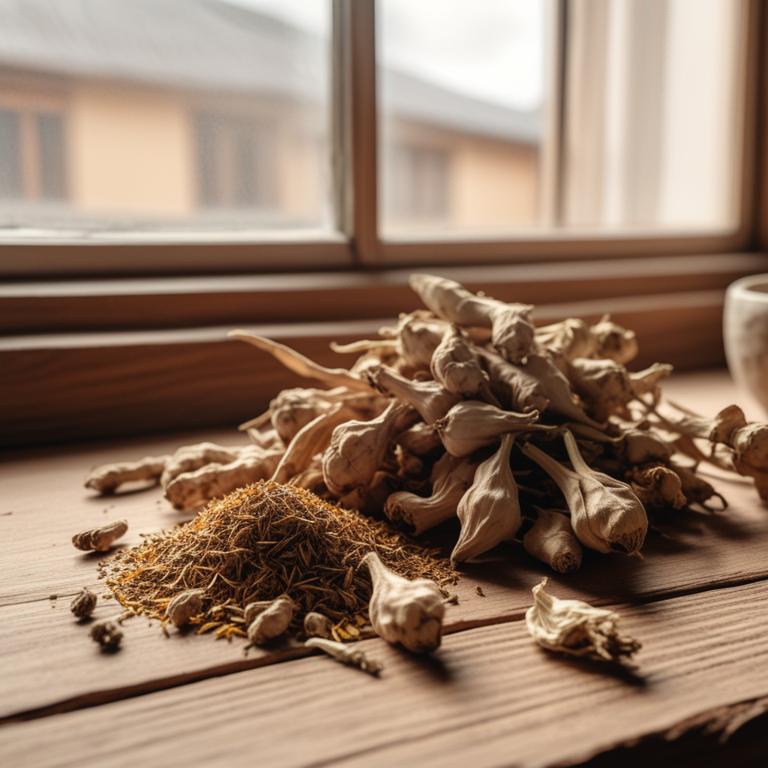Updated: Dec 1, 2024
Herbal Solutions for Eye Strain: Causes, Prevention, and Cure
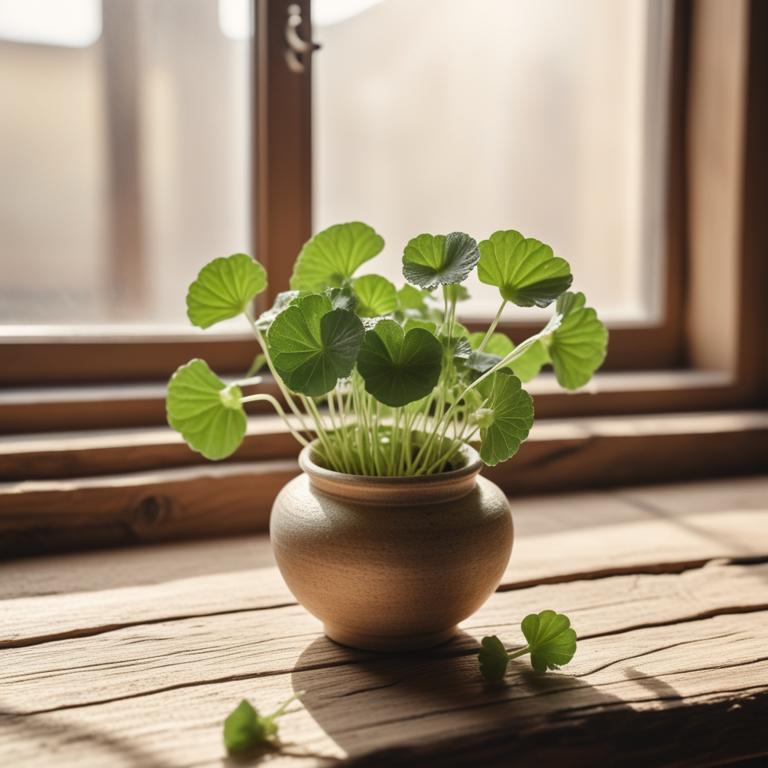
Eye strain is a common problem that can affect anyone who spends a lot of time in front of a computer or screen.
It can cause headaches, blurred vision, and fatigue, making it difficult to concentrate and get things done. But what causes eye strain?. One of the main reasons is prolonged use of digital devices, especially if the screen is too bright or too far away. Other causes include reading for long periods, driving at night, and even lack of sleep.
To find relief from eye strain, you can try using herbal remedies that have been used for centuries to soothe and calm the eyes. Herbs like eyebright, chamomile, and peppermint have anti-inflammatory properties that can help reduce swelling and ease discomfort. You can make a tea by steeping dried eyebright flowers in hot water, then let it cool before using it as an eye wash. Alternatively, you can add a few drops of peppermint oil to a warm compress to relax your eyes. Another way to use herbal remedies for eye strain is to take a supplement that combines herbs like ginkgo biloba and bilberry. These herbs can help improve blood flow to the eyes and reduce oxidative stress, which can contribute to eye strain.
You can also try applying a topical cream or ointment that contains cooling herbs like aloe vera or cucumber to calm and soothe your eyes.
Table of Contents
What are the primary causes of eye strain?
The main causes of eye strain are various factors that can affect how our eyes work and feel.
One of the main causes is Blue Light, which is a type of high-energy visible light emitted from digital devices like smartphones, tablets, and computers. This light can cause our eyes to work harder, leading to fatigue and discomfort. Another cause is Digital Screens, which can strain our eyes due to their bright and glowing nature. Staring at these screens for extended periods can cause our eyes to become tired and dry. Prolonged Reading is also a common cause of eye strain.
Whether it's reading a book, a newspaper, or even a document on a screen, focusing on text for too long can cause our eyes to become strained and tired. Insufficient Sleep is another factor that can contribute to eye strain. When we don't get enough sleep, our eyes can become dry and tired, making them more prone to strain. Dry Eyes are a physical condition that can cause eye strain. When our eyes don't produce enough tears or when the tears evaporate too quickly, our eyes can become dry and irritated, leading to discomfort and strain. Lastly, Poor Lighting can also cause eye strain.
Bright or harsh lighting can cause our eyes to become tired and strained, especially if we're reading or working in an area with inadequate lighting.
What are the advantages of using herbs to alleviate eye strain?
Using herbs for eye strain can be super helpful.
These herbs have anti-inflammatory properties that can reduce swelling and irritation in the eyes. They can also help to relax the muscles around the eyes, which can become tense from prolonged screen time or reading.
This relaxation can reduce eye fatigue and discomfort. Some herbs have antioxidant properties that can protect the eyes from damage caused by free radicals, which can contribute to eye strain. They can also help to improve blood flow to the eyes, bringing in more oxygen and nutrients to the area.
This can help to soothe and calm the eyes, reducing redness and dryness.
What are the main medicinal herbs used to treat eye strain?

Herbs have been used for centuries to help with eye strain, and they're still a great natural remedy today.
Ginkgo biloba is a popular herb for eye health because it improves blood flow to the eyes, reducing the risk of eye strain and fatigue. This is especially helpful for people who spend a lot of time on computers or read a lot. Valeriana officinalis, or valerian root, has a calming effect on the body and can help reduce eye strain caused by stress or anxiety.
Avena sativa, or oat straw, is known for its ability to relax and soothe the nervous system, which can be beneficial for people who experience eye strain due to tension or anxiety. Melissa officinalis, or lemon balm, is a natural stress-reliever and can help calm the eyes and reduce eye strain. Finally, Achillea millefolium, or yarrow, has anti-inflammatory properties that can help reduce eye strain and discomfort caused by dry eyes or irritation. These herbs can be used separately or in combination to help alleviate eye strain and promote eye health.
They can be consumed as teas, capsules, or added to eye drops, making them a convenient and natural solution for people who experience eye strain.
What are the frequently used herbal preparations for eye strain?

Herbal preparations can be really helpful in relieving eye strain.
Let's take a look at some of these preparations. Decoction tea, for instance, is made by steeping herbs in hot water, and it can be very soothing for tired eyes. The heat from the tea can help relax the muscles around the eyes and reduce inflammation. Herbs like chamomile and calendula are commonly used in decoction tea to calm the eyes and promote healing. Tincture drops, on the other hand, are liquid extracts of herbs that can be applied directly to the eyes. They're often used to reduce redness and swelling. Tinctures like eyebright and goldenseal contain anti-inflammatory properties that can help alleviate eye strain and promote healthy vision. Eye creams are topical applications that can be applied to the skin around the eyes to reduce puffiness and dark circles. They often contain herbs like witch hazel and green tea, which are known for their anti-inflammatory and antioxidant properties.
These creams can help reduce eye strain by promoting healthy skin and reducing puffiness. Gel pads are similar to eye creams but come in the form of a gel-like substance that can be applied directly to the eyes. They often contain herbs like peppermint and eucalyptus, which can help reduce inflammation and promote circulation. These gel pads can be a great way to relieve eye strain and promote healthy vision. Capsules are oral supplements that contain herbal extracts. They can be taken internally to promote overall eye health and reduce eye strain. Herbs like ginkgo biloba and bilberry are commonly used in capsules to improve vision and reduce the risk of age-related macular degeneration. These herbal preparations can be a great way to relieve eye strain and promote healthy vision. They often contain anti-inflammatory properties that can help reduce inflammation and promote healing.
By using these preparations, you can help reduce eye strain and promote overall eye health.
Additional Resources:
What herbs are not suitable if you have eye strain?
If you have eye strain, it's best to avoid Ephedra sinica because it can cause eye irritation and dryness.
This herb can also increase heart rate and blood pressure, which might make eye strain worse. Similarly, Schisandra chinensis can be a problem because it can cause your eyes to get even more tired. It's also known to cause dry mouth and throat, which might make your eyes feel drier and itchier. Rauvolfia serpentina can have some side effects that might make eye strain worse. It can cause dizziness, which might make you feel like you're seeing things that aren't there. It can also cause blurred vision, which could make eye strain even more uncomfortable. Panax ginseng can have similar side effects, including blurry vision and dizziness.
This can make it hard to focus and might make eye strain feel worse. Ziziphus jujuba can also cause dizziness and blurry vision. It's also known to cause dryness in the mouth and throat, which might make your eyes feel drier. When you have eye strain, you want to take care of your eyes, not make things worse. Some herbs can cause eye irritation, dryness, or blurry vision. These can make eye strain feel even more uncomfortable. If you have eye strain, it's best to talk to your doctor or a healthcare professional about what herbs are safe for you to use.
They can help you figure out what's best for your eyes.
FAQ
Are there any specific herbs that can prevent eye strain?
Some herbs like bilberry and eyebright may help reduce eye strain.
Bilberry, a type of berry, is rich in antioxidants that protect the eyes from damage. Eyebright, a flowering plant, has anti-inflammatory properties that can soothe irritated eyes.
These herbs are sometimes found in eye care supplements or teas.
Is it safe to use herbal remedies for eye strain during pregnancy?
It's generally best to be cautious with herbal remedies during pregnancy.
Some herbs can affect the baby's development or cause allergic reactions. If you're experiencing eye strain, try to take breaks and rest your eyes.
You can also use warm compresses or over-the-counter eye drops to help soothe your eyes.
Are there any herbs that can reduce the frequency of eye strain?
Some herbs, like eyebright and ginkgo biloba, may help reduce eye strain.
Eyebright, in particular, is thought to have anti-inflammatory properties that could ease eye fatigue. Ginkgo biloba is believed to improve blood flow to the eyes, which may help reduce strain and discomfort.
These herbs are sometimes used to soothe tired eyes.
Related Articles
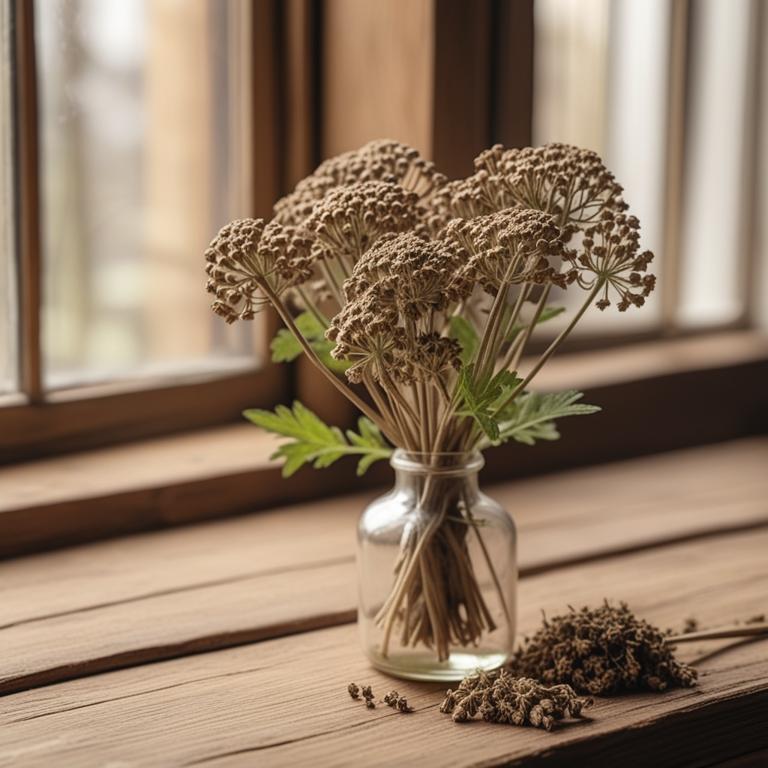
Causes and Cures for Jet Lag Using Herbal Preparations
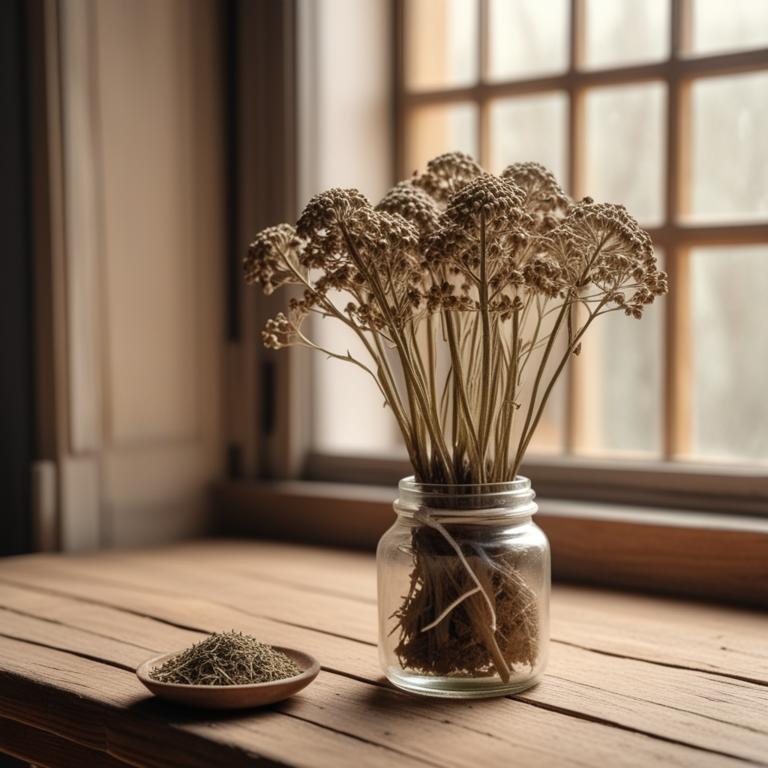
Breaking Down Depression: Causes, Symptoms, and Herbal Remedies
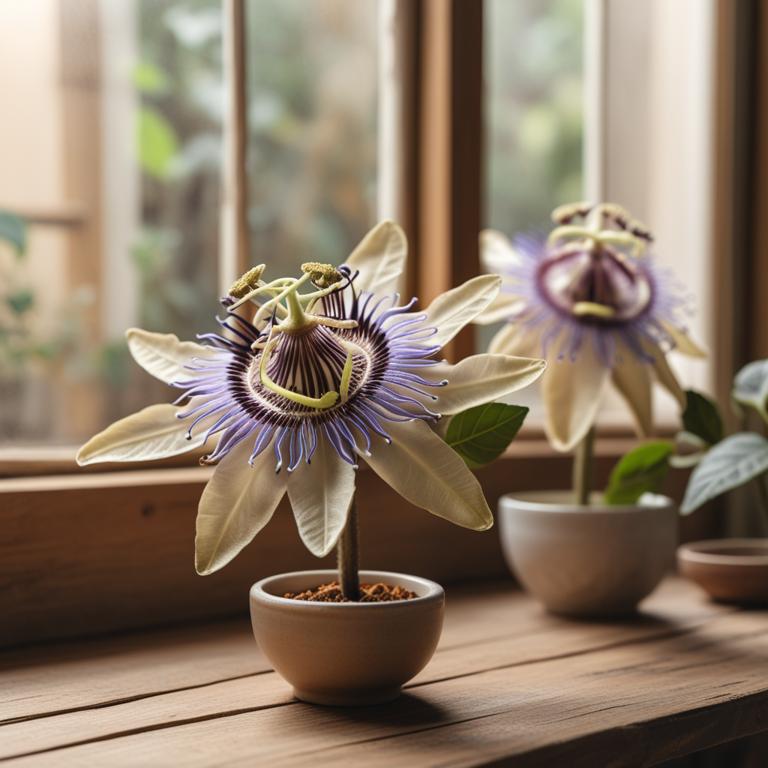
Nerve Pain and Herbal Preparations: Understanding Causes and Natural Relief
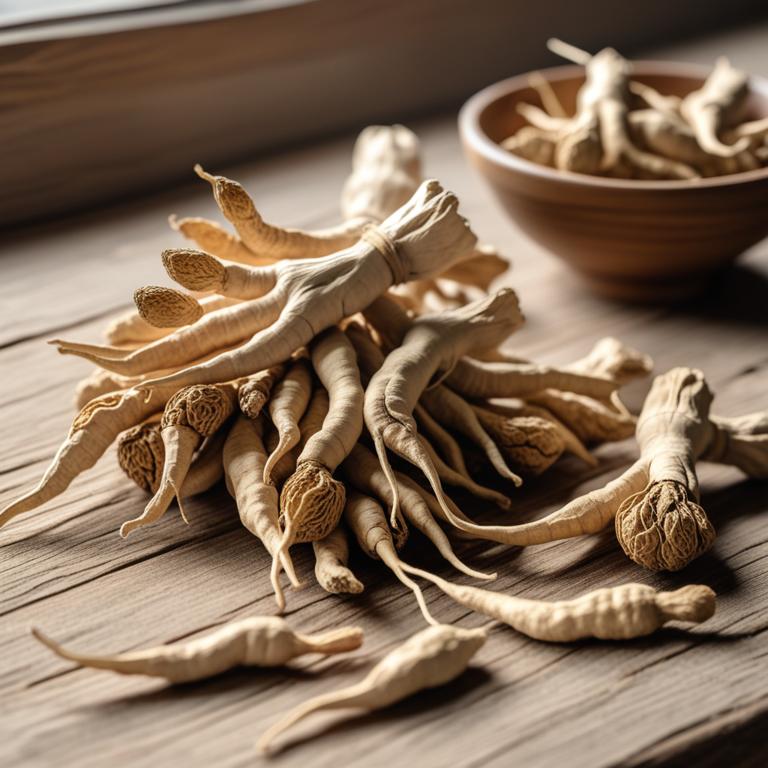
Overcoming Lost Voice: Causes, Medicinal Herbs, and Herbal Preparations for Fast Recovery

Anxiety Relief: Exploring Medicinal Herbs and Natural Preparations





